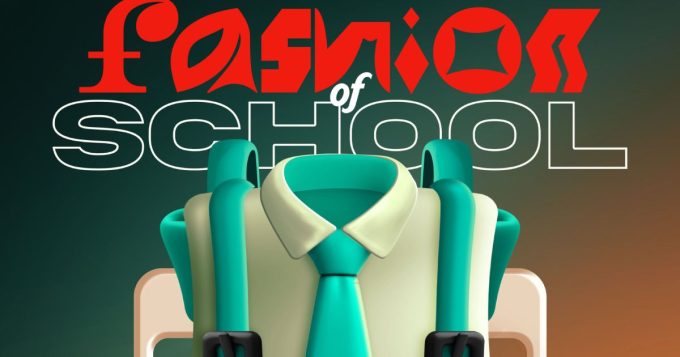Pakistan’s economy is in a state of crisis. The inflation rate has left citizens struggling to afford even the basics: electricity, fuel and food. The Pakistani rupee has lost its value in the last few years, making it even more difficult for people to plan for the future. Unemployment rates continue to climb, and job opportunities in traditional sectors are shrinking.
It is a frustrating reality. The situation looks bleak, and the only certainty is that things do not seem to be improving anytime soon. With all these economic pressures mounting, it is no wonder that Gen Z is increasingly turning to alternative sources of income.
But here is the thing: While most people might look at these alternative money-making methods and think. “That is risky, and too good to be true.” There is another way to see it. Gen Z is not simply looking for shortcuts; they are adapting to a broken system, making moves that look unconventional. But when you consider the economic instability they are dealing with, these moves make perfect sense.
A System in Crisis
Pakistan’s economic struggles are not new. For years, the country has relied on quick solutions to patch up its fiscal problems. Government budget approvals are often rushed, with little consideration for long-term sustainability. Policies aimed at addressing inflation or creating job opportunities tend to be temporary fixes rather than permanent solutions.
Additionally, when the country faces significant economic distress, loans from institutions like the IMF have become a go-to solution. These loans offer immediate relief but come at the cost of increasing national debt. Pakistan has borrowed more than $7 billion from the IMF in recent years, exacerbating its financial challenges.
This pattern of relying on quick fixes has created a culture where shortcuts are normalised. When the country’s financial system runs on temporary solutions. It is only natural that the younger generation will seek out alternative routes to success. It is almost as if quick fixes have become the status quo.
The Rise of Quick Money
Gen Z’s desire for quick financial success can be traced back to their exposure to online opportunities and the rise of digital entrepreneurship. Platforms like YouTube, TikTok and Instagram have given rise to influencers who flaunt their success and wealth, often through businesses that seem to thrive overnight. This has created a new standard for what success looks like, and for many, it means making money quickly and easily.
Key trends have emerged in this pursuit of quick wealth:
Freelancing: With platforms like Upwork and Fiverr, young people are earning money by offering their skills to clients around the world. According to the State Bank of Pakistan, freelance work in Pakistan grew by 47% from 2022 to 2023, with over 3 million freelancers contributing to the economy.
Dropshipping: The e-commerce world has exploded in recent years, and dropshipping has become one of the easiest ways to start an online business. This model requires minimal startup capital, and many believe it offers a shortcut to becoming an entrepreneur. However, profit margins can be slim, and the competition is fierce.
Cryptocurrency: As digital currencies like Bitcoin and Ethereum gain popularity, many young Pakistanis are diving into the world of crypto trading. While crypto can offer substantial returns, it is also highly volatile. According to a 2022 Chainalysis report, 10% of Pakistanis are involved in cryptocurrency in some capacity, despite the country’s regulatory uncertainties.
The Risks and Rewards
While these alternative income sources offer the promise of quick wealth, they are far from guaranteed and carry inherent risks:
Crypto trading offers high rewards but is incredibly volatile. The market can fluctuate dramatically in a short period, leading to significant financial losses for those who are not careful. Despite being unregulated in Pakistan, it is still a popular investment choice for the young generation. However, the uncertainty surrounding crypto’s legality and ethical concerns, such as its religious implications, make it a risky venture. Is crypto legal in Pakistan? Is it halal or haram? For now, what is clear is that the country’s regulatory framework around crypto is uncertain. This makes crypto both an enticing yet dangerous pursuit.
Freelancing, while it offers flexibility, does not always provide a stable income. Freelancers often face uncertainty, lack of job security, and income that varies. According to the International Labour Organisation (ILO), around 70% of freelancers globally earn below minimum wage, highlighting the challenges of making freelancing a viable long-term career option.
Dropshipping, though appealing for its low startup costs, can be difficult to scale. The initial excitement of making money online can quickly fade when business owners realise they have to deal with supply chain issues, customer service, and marketing challenges. Moreover, ad costs on platforms like Facebook and Google can eat into profits.
Despite these risks, the allure of quick money is undeniable. Youngsters are attracted to achieving financial independence without having to work a traditional 9 to 5 job. But the reality is that while some succeed, many fail to generate the long-term success they had hoped for.
Is Quick Money the Right Path?
In a society where traditional career paths seem out of reach for many, it is understandable why Gen Z would pursue quick money-making ventures rather than the conventional route. With inflation at an all-time high and job opportunities limited, these methods of earning are pragmatic solutions for those looking to break free from economic uncertainty. However, while these avenues offer quick returns, they come with their own set of challenges that can lead to financial instability in the long run.
But there is another dimension to consider: quick money is not just a cultural trend. It is also an economic necessity for many. Pakistan’s entire system is built on shortcuts. From government budget approvals that only offer temporary fixes to the continuous cycle of taking loans from international institutions, the country’s financial system thrives on expedient solutions.
This creates a paradox: if the system itself runs on shortcuts, why shouldn’t we? The same people who mock the younger generation for their quick-money obsession often overlook the fact that the entire country is operating on quick fixes. It is like criticising the youth for jumping on the crypto bandwagon while the government itself is borrowing from the IMF for quick relief. Both are shortcuts, and one is not necessarily better than the other.
Gen Z’s obsession with quick money is not about laziness or a desire for instant gratification; it is a response to the economic challenges that define life in Pakistan today. The younger generation has learned to adapt in a world where traditional career paths offer little in terms of security or financial growth.
The question remains: Is the quick-money culture sustainable? While it offers immediate rewards, the risks are high, and many will not find lasting success. Nevertheless, in a country where financial stability feels out of reach for many, it is hard to blame Gen Z for seeking out alternative methods of earning. The reality is, the system itself encourages shortcuts, and this generation is simply following suit.










